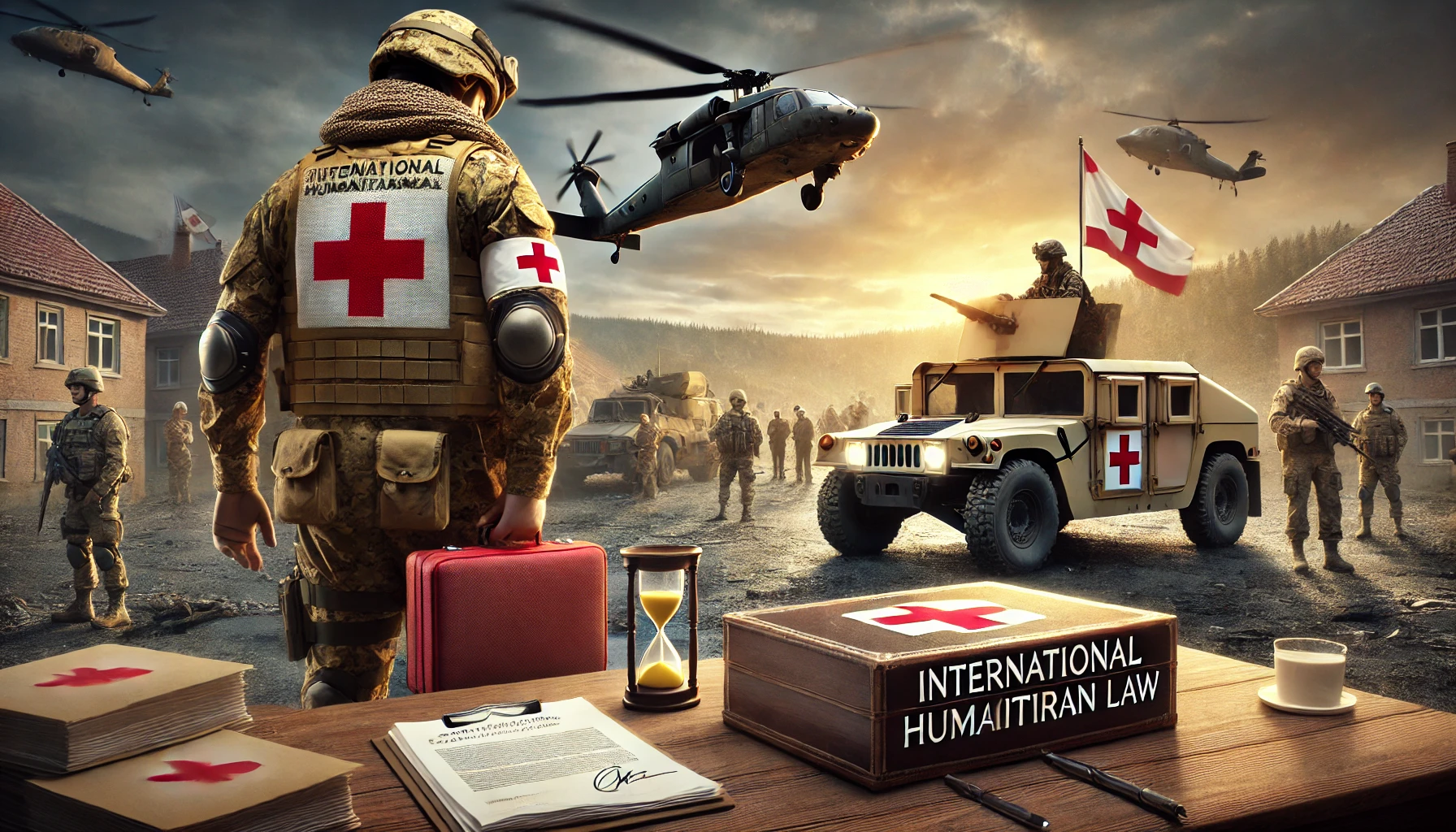International Humanitarian Law (IHL), also known as the law of armed conflict or the law of war, is a critical legal framework designed to regulate the conduct of armed conflict and to protect those who are not participating in hostilities. In a world where conflicts continue to impact millions of lives, IHL plays a vital role in maintaining a sense of humanity, even during war.
But what exactly is International Humanitarian Law? Who does it protect? And why should legal professionals, policymakers, and global citizens care about it? This article will explore these questions in depth and explain why IHL is more relevant than ever.
Understanding the Core of IHL
IHL is a branch of public international law that specifically governs the behavior of parties involved in armed conflicts. It does not address why wars occur, nor does it concern itself with the legitimacy of war (that falls under jus ad bellum). Instead, IHL focuses on jus in bello—the law that applies once conflict has begun.
The primary objectives of IHL are:
- To protect persons who are not or are no longer participating in hostilities (e.g., civilians, medical personnel, wounded soldiers, and prisoners of war)
- To restrict the means and methods of warfare to reduce unnecessary suffering
Key Legal Instruments in IHL
The most important treaties forming the foundation of IHL are:
The Geneva Conventions (1949) and Their Additional Protocols
There are four Geneva Conventions:
- Protection of wounded and sick soldiers on land
- Protection of wounded, sick, and shipwrecked military personnel at sea
- Protection of prisoners of war
- Protection of civilians in times of war
These conventions are universally ratified and serve as the cornerstone of IHL. The Additional Protocols (1977 and 2005) expanded the scope to include civil wars and modern forms of conflict.
The Hague Conventions (1899 and 1907)
These treaties regulate the means and methods of warfare, particularly the use of weapons and military tactics.
Customary International Law
Beyond treaties, IHL includes customary rules derived from consistent state practice and legal obligation, which are binding even on states that haven’t signed specific treaties.
Fundamental Principles of International Humanitarian Law
IHL is guided by several key principles that ensure its implementation is ethical, balanced, and effective:
1. Distinction
Parties must always distinguish between combatants and civilians. Attacks must be directed only at military targets.
2. Proportionality
Attacks that may cause incidental loss of civilian life or damage must not be excessive in relation to the anticipated military advantage.
3. Military Necessity
Only the force required to achieve a legitimate military objective may be used. Unnecessary destruction is prohibited.
4. Humanity
All forms of unnecessary suffering or inhumane treatment are forbidden, regardless of military objectives.
5. Neutrality
Medical personnel, humanitarian workers, and facilities such as hospitals must be respected and protected.
Who Is Protected Under IHL?
IHL protects various categories of individuals, including:
- Civilians: Must not be targeted and should be protected against dangers from military operations.
- Prisoners of War: Must be treated humanely and given adequate food, shelter, and medical care.
- Wounded and Sick: Should receive medical attention regardless of their affiliation.
- Medical and Humanitarian Workers: Enjoy special protection due to their essential roles during conflict.
IHL in Modern Conflicts
Armed conflicts today are rarely between states; they often involve non-state actors, insurgents, and multinational forces. Despite this evolution, IHL still applies.
Challenges in Modern Contexts
- Urban warfare increases the risk to civilians.
- Cyber warfare introduces new questions about what constitutes an “attack.”
- Terrorism and asymmetric conflicts test traditional categories of combatants.
IHL adapts through the interpretation of existing rules and the development of new treaties or customary laws.
Enforcement and Accountability
Unlike domestic law, international humanitarian law lacks a single enforcement body. However, there are mechanisms to hold violators accountable:
1. International Criminal Court (ICC)
The ICC can prosecute individuals for war crimes, crimes against humanity, and genocide.
2. National Jurisdictions
States have an obligation to prosecute serious IHL violations, even if committed abroad.
3. Special Tribunals
Courts such as those for the former Yugoslavia (ICTY) and Rwanda (ICTR) were established to prosecute violations of IHL.
4. Reporting and Advocacy
Organizations like the International Committee of the Red Cross (ICRC) and Human Rights Watch monitor compliance and report abuses.
Why IHL Matters in Today’s World
Protects the Most Vulnerable
In conflict zones, IHL provides a legal shield for civilians, children, refugees, and the wounded. It’s a lifeline for the most vulnerable.
Promotes Ethical Conduct in War
By regulating what is permissible, IHL brings a measure of morality and accountability to warfare.
Serves as a Foundation for Justice
Violations of IHL are not forgotten. They become cases for international courts, and their prosecution helps deliver justice for victims and deter future violations.
Supports Humanitarian Access
IHL ensures that humanitarian organizations can reach people in need, even in the heart of conflict zones.
Final Thoughts: Law Amid Chaos
International Humanitarian Law is not perfect—it cannot prevent war, and enforcement remains a challenge. But it is one of the most important achievements of modern civilization. In times of chaos and violence, IHL is a reminder that even war has limits, and that human dignity must always be preserved.
For legal professionals, understanding IHL is not just a scholarly pursuit. It is a practical, moral, and legal obligation in a world where conflict is a tragic but persistent reality.
